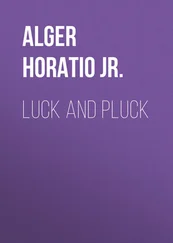Horatio Alger - Brave and Bold; Or, The Fortunes of Robert Rushton
Здесь есть возможность читать онлайн «Horatio Alger - Brave and Bold; Or, The Fortunes of Robert Rushton» — ознакомительный отрывок электронной книги совершенно бесплатно, а после прочтения отрывка купить полную версию. В некоторых случаях можно слушать аудио, скачать через торрент в формате fb2 и присутствует краткое содержание. Жанр: foreign_children, literature_19, foreign_antique, foreign_prose, на английском языке. Описание произведения, (предисловие) а так же отзывы посетителей доступны на портале библиотеки ЛибКат.
- Название:Brave and Bold; Or, The Fortunes of Robert Rushton
- Автор:
- Жанр:
- Год:неизвестен
- ISBN:нет данных
- Рейтинг книги:3 / 5. Голосов: 1
-
Избранное:Добавить в избранное
- Отзывы:
-
Ваша оценка:
- 60
- 1
- 2
- 3
- 4
- 5
Brave and Bold; Or, The Fortunes of Robert Rushton: краткое содержание, описание и аннотация
Предлагаем к чтению аннотацию, описание, краткое содержание или предисловие (зависит от того, что написал сам автор книги «Brave and Bold; Or, The Fortunes of Robert Rushton»). Если вы не нашли необходимую информацию о книге — напишите в комментариях, мы постараемся отыскать её.
Brave and Bold; Or, The Fortunes of Robert Rushton — читать онлайн ознакомительный отрывок
Ниже представлен текст книги, разбитый по страницам. Система сохранения места последней прочитанной страницы, позволяет с удобством читать онлайн бесплатно книгу «Brave and Bold; Or, The Fortunes of Robert Rushton», без необходимости каждый раз заново искать на чём Вы остановились. Поставьте закладку, и сможете в любой момент перейти на страницу, на которой закончили чтение.
Интервал:
Закладка:
How much he was worth, no one knew. The town assessors sought in vain for stocks and bonds. He did not appear to possess any. Probably popular opinion was correct in asserting that he secreted his money in one or many out-of-the-way places, which, from time to time, he was wont to visit and gloat over his treasures. There was reason also to believe that it was mostly in gold, for he had a habit of asking specie payments from those indebted to him, or, if he could not obtain specie, he used to go to a neighboring town with his bank notes and get the change effected.
Such was the man about whom Robert's unknown passenger exhibited so much curiosity, and whom it seemed that he was intending to visit.
"I wonder whether the old man is at home!" he said to himself, as he entered the front yard through a gateway, from which the gate had long since disappeared. "He don't keep things looking very neat and trim, that's a fact," he continued, noticing the rank weeds and indiscriminate litter which filled the yard. "Just give me this place, and his money to keep it, and I'd make a change in the looks of things pretty quick."
He stepped up to the front door, and, lifting the old-fashioned knocker, sounded a loud summons.
"He'll hear that, if he isn't very deaf," he thought.
But the summons appeared to be without effect. At all events, he was left standing on the doorstone, and no one came to bid him enter.
"He can't be at home, or else he won't come," thought the visitor. "I'll try him again," and another knock, still louder than before, sounded through the farmhouse.
But still no one came to the door. The fact was, that the old farmer had gone away early, with a load of hay, which he had sold; to a stable-keeper living some five miles distant.
"I'll reconnoiter a little," said the stranger.
He stepped to the front window, and looked in. All that met his gaze was a bare, dismantled room.
"Not very cheerful, that's a fact," commented the outsider. "Well, he don't appear to be here; I'll go round to the back part of the house."
He went round to the back door, where he thought it best, in the first place, to knock. No answer coming, he peered through the window, but saw no one.
"The coast is clear," he concluded. "So much the better, if I can get in."
The door proved to be locked, but the windows were easily raised. Through one of these he clambered into the kitchen, which was the only room occupied by the old farmer, with the exception of a room above, which he used as a bedchamber. Here he cooked and ate his meals, and here he spent his solitary evenings.
Jumping over the window sill, the visitor found himself in this room. He looked around him, with some curiosity.
"It is eighteen years since I was last in this room," he said. "Time hasn't improved it, nor me, either, very likely," he added, with a short laugh. "I've roamed pretty much all over the world in that time, and I've come back as poor as I went away. What's that copy I used to write?—'A rolling stone gathers no moss.' Well, I'm the rolling stone. In all that time my Uncle Paul has been moored fast to his hearthstone, and been piling up gold, which he don't seem to have much use for. As far as I know, I'm his nearest relation, there's no reason why he shouldn't launch out a little for the benefit of the family."
It will be gathered from the foregoing soliloquy that the newcomer was a nephew of Paul Nichols. After a not very creditable youth, he had gone to sea, and for eighteen years this was his first reappearance in his native town.
He sat down in a chair, and stretched out his legs, with an air of being at home.
"I wonder what the old man will say when he sees me," he soliloquized. "Ten to one he won't know me. When we saw each other last I was a smooth-faced youth. Now I've got hair enough on my face, and the years have made, their mark upon me, I suspect. Where is he, I wonder, and how long have I got to wait for him? While I'm waiting, I'll take the liberty of looking in the closet, and seeing if he hasn't something to refresh the inner man. I didn't make much of a breakfast, and something hearty wouldn't come amiss."
He rose from his chair, and opened the closet door. A small collection of crockery was visible, most of it cracked, but there was nothing eatable to be seen, except half a loaf of bread. This was from the baker, for the old man, after ineffectual efforts to make his own bread, had been compelled to abandon the attempt, and patronize the baker.
"Nothing but a half loaf, and that's dry enough," muttered the stranger. "That isn't very tempting. I can't say much for my uncle's fare, unless he has got something more attractive somewhere."
But, search as carefully as he might, nothing better could be found, and his appetite was not sufficiently great to encourage an attack upon the stale loaf. He sat down, rather discontented, and resumed the current of his reflections.
"My uncle must be more of a miser than I thought, if he stints himself to such fare as this. It's rather a bad lookout for me. He won't be very apt to look with favor on my application for a small loan from his treasure. What's that the boy said? He don't trust any banks, but keeps his money concealed in the earth. By Jove! It would be a stroke of luck if I could stumble on one of his hiding places! If I could do that while he was away, I would forego the pleasure of seeing him, and make off with what I could find. I'll look about me, and see if I can't find some of his hidden hoards."
No sooner did the thought occur to him than he acted upon it.
"Let me see," he reflected, "where is he most likely to hide his treasure? Old stockings are the favorites with old maids and widows, but I don't believe Uncle Paul has got any without holes in them. He's more likely to hide his gold under the hearth. That's a good idea, I'll try the hearth first."
He kneeled down, and began to examine the bricks, critically, with a view of ascertaining whether any bore the marks of having been removed recently, for he judged correctly that a miser would wish, from time to time, to unearth his treasure for the pleasure of looking at it. But there was no indication of disturbance. The hearth bore a uniform appearance, and did not seem to have been tampered with.
"That isn't the right spot," reflected the visitor. "Perhaps there's a plank in the floor that raises, or, still more likely, the gold is buried in the cellar. I've a great mind to go down there."
He lit a candle, and went cautiously down the rickety staircase. But he had hardly reached the bottom of the stairs, when he caught the sound of a wagon entering the yard.
"That must be my uncle," he said. "I'd better go up, and not let him catch me down here."
He ascended the stairs, and re-entered the room just as the farmer opened the door and entered.
On seeing a tall, bearded stranger, whom he did not recognize, standing before him in his own kitchen, with a lighted candle in his hand, Paul Nichols uttered a shrill cry of alarm, and ejaculated:
"Thieves! Murder! Robbers!" in a quavering voice.
CHAPTER IX.
THE UNWELCOME GUEST
The stranger was in rather an awkward predicament. However, he betrayed neither embarrassment nor alarm. Blowing out the candle, he advanced to the table and set it down. This movement brought him nearer Paul Nichols, who, with the timidity natural to an old man, anticipated an immediate attack.
"Don't kill me! Spare my life!" he exclaimed, hastily stepping back.
"I see you don't know me, Uncle Paul?" said the intruder, familiarly.
"Who are you that call me Uncle Paul?" asked the old man, somewhat reassured.
"Benjamin Haley, your sister's son. Do you know me now?"
"You Ben Haley!" exclaimed the old man, betraying surprise. "Why, you are old enough to be his father."
Читать дальшеИнтервал:
Закладка:
Похожие книги на «Brave and Bold; Or, The Fortunes of Robert Rushton»
Представляем Вашему вниманию похожие книги на «Brave and Bold; Or, The Fortunes of Robert Rushton» списком для выбора. Мы отобрали схожую по названию и смыслу литературу в надежде предоставить читателям больше вариантов отыскать новые, интересные, ещё непрочитанные произведения.
Обсуждение, отзывы о книге «Brave and Bold; Or, The Fortunes of Robert Rushton» и просто собственные мнения читателей. Оставьте ваши комментарии, напишите, что Вы думаете о произведении, его смысле или главных героях. Укажите что конкретно понравилось, а что нет, и почему Вы так считаете.












